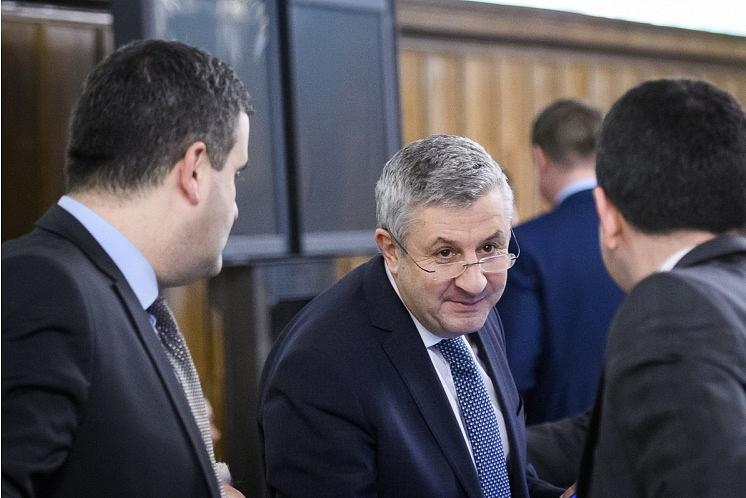Romania’s ruling party announces major changes to Criminal Codes

Romania’s ruling Social Democratic Party (PSD) plans to bring some major changes to the Criminal Code, the Criminal Procedure Code and the Civil Procedure Code, which would change the way criminal investigations are conducted and would make the prosecutors’ job more difficult while giving suspects more rights than they currently have.
The projects to change the three codes were posted on the website of the Parliament Commissions tasked with the justice laws, which is led by PSD MP Florin Iordache.
In January 2017, when Iordache was justice minister, the Government adopted an emergency ordinance to change the criminal codes. The ordinance, which would have changed overnight the way some corruption offences are treated in Romania, triggered the biggest street protests that Romania has seen in over two decades. The Government repealed the ordinance and Iordache resigned, but then took helm of the special committee in the Parliament in charge with changing the justice laws.
The project to change Romania’s Criminal Procedure Code would limit public information about ongoing investigation and ban showing handcuffed suspects. It would also allow suspects to take part in any hearing in their case, at their request. Hearings should take maximum 6 out of 24 hours, according to News.ro.
Digital data from a system unrelated to the crime, recovered based on a specific search warrant, would no longer be copied and used to in other criminal cases without a new, specific search warrant. These would include telephone call recordings, which can be heard by the suspects, on their request. After the case is closed, such recordings would have to be erased, unless they are subject to new search warrant issued in another investigation.
The project was submitted yesterday to the Parliament. Should it pass in this form, the law would also apply retroactively, to decisions already issued.
Another big change to the Criminal Procedure Code would also allow convicted criminals a lifeline even after the court rules a final sentence. Thus, if the sentence’s motivation is not signed by all the judges that were part of the ruling, the sentence can be challenged and the case would stand trial again, according to Hotnews.ro. This would apply retroactively, which would also allow Social Democratic Party (PSD) leader Liviu Dragnea to ask for a retrial in the Referendum case, in which he was sentenced to two years of probation for fraud at the 2012 referendum to suspend President Traian Basescu. The final sentence motivation in Dragnea’s case was not signed by all the judges as some of them retired.
Liviu Dragnea said he may not use this option, should such a change be adopted, because nothing can compensate him for the years spent in court and the things he lost because of this sentence, according to Hotnews.ro. The criminal conviction prevented Dragnea from becoming prime minister after his party won the parliamentary elections in December 2016.
Changes to the Criminal Code were also announced. An important change aims to limit denouncements by setting a 6-month period from the date of a corruption act in which each of the parties involved can denounce the act without facing charges. This would have a great impact on corruption investigations as many of the cases against top level officials prosecuted in recent years target offences that date back several years and are based on denouncements by involved parties, according to News.ro.
Another change provides that issuing normative acts can’t be considered a criminal offence, even if it tampers with a criminal investigation. Moreover, public officials who break the presumption of innocence and induce the idea that a person is guilty before a final conviction is ruled in court risk going to jail for 6 months to 3 years.
The new Criminal Code also aims to change the provisions about lying under oath, allowing witnesses to change their statements during criminal investigations. Senate president Calin Popescu Tariceanu is currently being tried for lying under oath during a criminal investigation.
The project also changes the way organised crime groups are defined. Thus, an organised crime group needs to have a structure and each member needs to have pre-established roles. People who spontaneously organise themselves to commit crime will no longer be considered an organised crime group.
No changes have been announced yet for the abuse of office offence, one of the most important issues included in last year's debate on the Criminal Code. The ruling coalition wants to partially decriminalize or redefine abuse of office.
editor@romania-insider.com















